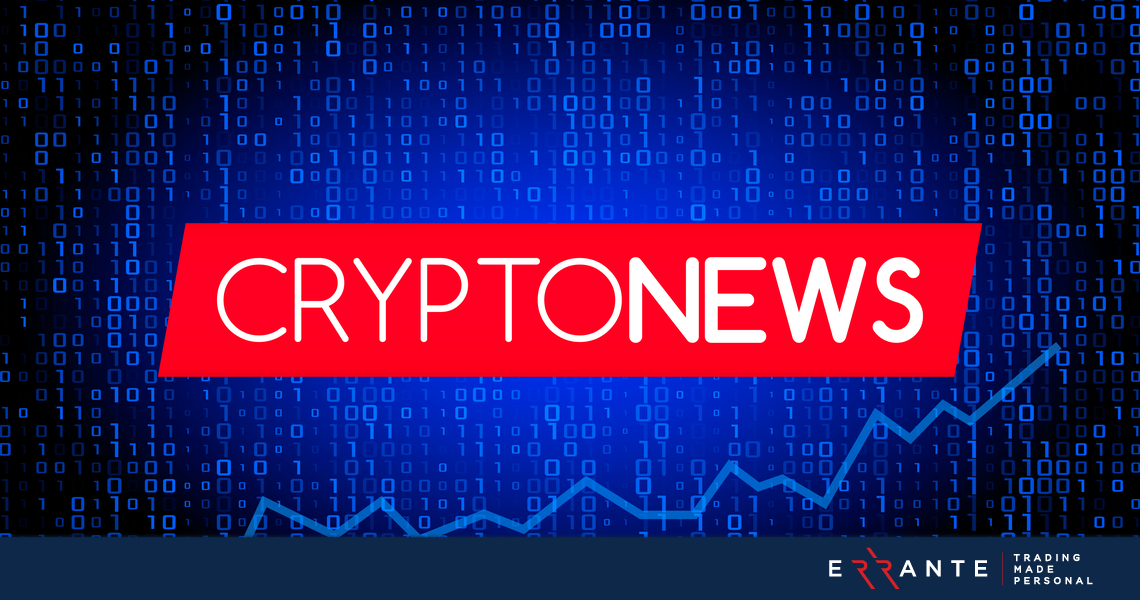copyright News Insurance Coverage: Crucial Details for each Financier
copyright News Insurance Coverage: Crucial Details for each Financier
Blog Article
Checking Out the Influence of Governing Modifications and Technological Developments on Today's Digital Currencies Headlines
The junction of regulative modifications and technological technologies is essentially modifying the landscape of digital currencies, prompting a re-evaluation of their role in the international economic situation. Regulative bodies, such as the SEC and CFTC, are actively affecting exactly how digital properties are categorized, while new technologies are enhancing transaction effectiveness and safety and security procedures. This double evolution raises critical questions about the effects for market dynamics and financier confidence. As we discover these growths, the concern continues to be: exactly how will these factors shape the future trajectory of electronic money in a progressively interconnected globe?
Current Regulatory Landscape
Following rapid developments in electronic currencies, the current regulative landscape is evolving to attend to the intricacies and difficulties presented by these developments. Federal governments and regulative bodies globally are grappling with just how to effectively supervise this expanding market, which typically transcends nationwide borders.
Key regulatory techniques include the establishment of frameworks that specify electronic currencies, ensuring customer protection and avoiding illicit tasks such as cash laundering and fraudulence. In the United States, companies like the Securities and Exchange Commission (SEC) and the Product Futures Trading Commission (CFTC) are actively taking part in conversations to clear up the category of numerous digital assets and their regulatory effects.
Likewise, the European Union is progressing its Markets in copyright-Assets (MiCA) guideline, which aims to create a cohesive governing environment throughout member states. Nations like China have gone with more stringent procedures, including straight-out bans on certain copyright tasks.
As this regulative landscape remains to create, it will be critical for stakeholders, consisting of companies and consumers, to remain educated and adjust to the altering environment to alleviate risks while profiting from possibilities within the digital money ball.
Key Technological Innovations
Many technological innovations are reshaping the landscape of electronic money, considerably enhancing their functionality and security. One of one of the most essential improvements is the development of blockchain technology, which provides a decentralized journal that makes sure openness and immutability of purchases. copyright news. This technology not only reduces the danger of fraud yet also enables real-time transaction confirmation, fostering individual depend on
In addition, the appearance of smart agreements has reinvented just how contracts are executed within digital currency ecological communities. These self-executing agreements facilitate automatic deals, removing middlemans and lowering costs connected with conventional contract enforcement. Advancements in cryptographic techniques improve the safety of electronic budgets, securing users' possessions from potential cyber dangers.
An additional noteworthy technology is the assimilation of fabricated knowledge in transaction monitoring and fraud discovery, enabling platforms to recognize dubious activities immediately. Additionally, the intro of Layer 2 scaling solutions, such as the Lightning Network, addresses scalability issues, enabling faster and cheaper deals on networks like Bitcoin.

Influence On Market Characteristics
Technological click developments in electronic currencies have not only boosted performance and security yet have likewise dramatically altered market dynamics. The introduction of blockchain innovation has actually boosted openness and lowered purchase prices, resulting in higher effectiveness in trading directory and investment. This has motivated a much more varied variety of individuals, from retail capitalists to institutional players, to engage with digital currencies, thereby magnifying market liquidity.
In addition, the development of decentralized money (DeFi) platforms has actually interfered with typical economic systems, giving users with alternative avenues for lending, borrowing, and trading. This shift has promoted an affordable setting where conventional financial organizations are compelled to introduce or run the risk of obsolescence (copyright news). With the surge of stablecoins, which use rate stability in the middle of volatility, traders can currently implement deals with reduced danger, further affecting market habits
In addition, the assimilation of expert system and machine understanding in trading strategies permits much more innovative market analysis and anticipating modeling. Consequently, capitalists are better furnished to reply to market changes, creating a much more dynamic trading atmosphere. Jointly, these advancements are reshaping the landscape of electronic currencies, resulting in a more interconnected, competitive, and effective market.

Global Perspectives on Guideline
Governing strategies to electronic money vary considerably throughout the world, usually showing differing financial priorities, cultural perspectives toward advancement, and degrees of technological fostering. In the USA, regulative bodies such as the SEC and CFTC come to grips with specifying the legal condition of cryptocurrencies, concentrating on capitalist security and market honesty. The European Union is advancing comprehensive regulative frameworks like the Markets in copyright-Assets (MiCA) proposition, aiming to create a unified method that promotes advancement while making certain consumer safety.
In contrast, countries like China have actually embraced a straight-out ban on cryptocurrencies, focusing on financial control and economic stability over technology. Alternatively, nations such as El Salvador have embraced Bitcoin as lawful tender, showcasing a strong dedication to financial addition and financial innovation.
Developing nations usually locate themselves navigating a complex landscape, balancing the demand for policy with the possible benefits of electronic currencies in driving financial development. Overall, the global regulatory atmosphere stays fragmented, with recurring dialogues and adjustments as federal governments seek to strike an equilibrium between cultivating technology and mitigating risks related to electronic currencies. This dynamic landscape underscores the requirement for recurring international teamwork and dialogue amongst regulators.
Future Patterns in Digital Currencies
As governing frameworks progress, the landscape of electronic currencies is poised for substantial change. Arising patterns show a convergence of governing clearness and technical improvement, which will form the future of electronic money. Reserve Bank Digital Currencies (CBDCs) are prepared for to obtain traction as federal governments discover their prospective to improve monetary policy effectiveness and financial addition.
At the same time, decentralized finance (DeFi) platforms are expected to challenge standard financial systems, offering cutting-edge economic solutions that operate without intermediaries. This shift can result in a re-evaluation of existing laws to accommodate the distinct characteristics of DeFi while home ensuring consumer protection and systemic stability.
Additionally, the integration of artificial intelligence and machine learning in copyright trading and threat analysis will redefine financial investment strategies and market characteristics. As digital money end up being progressively mainstream, issues such as cybersecurity dangers and regulatory conformity will certainly demand robust solutions.
Lastly, public understanding and adoption will play a vital function in determining the trajectory of digital currencies. Enhanced understanding and education and learning relating to the benefits and threats connected with electronic currencies will certainly drive acceptance, inevitably influencing the regulative landscape and market developments in the years to find.
Conclusion

Report this page